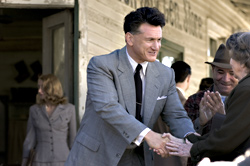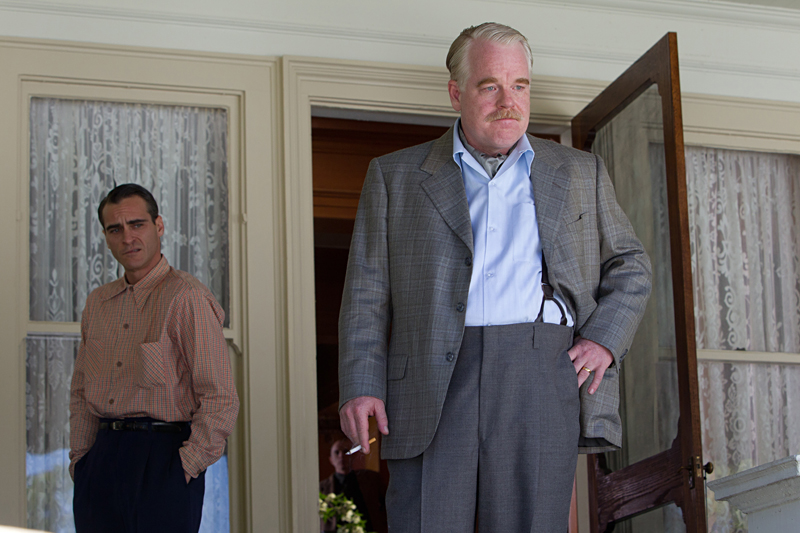Let loose with what is remembered as a large, meaty, all-American role within a properly Pulitzered and still school- assigned mega-fiction (filmed already in 1949 and showered with forgotten Oscars), Sean Penn goes for larger than life, wrapping his pinched frown around an unintelligible Louisiana drawl and swinging his arms like an autistic evangelist. (Maybe it’s the hick-Eraserhead hair, encouraging us to place this cracker politician somewhere between his special-kid in I Am Sam and his obliviously narcissistic guitarist in Sweet and Lowdown.)
Characterwise, Penn is most effective at boiling pots with tight lids—he’s an internal combustion engine. A small man, he even tries to evoke the working-class blubber of the original version’s star, Broderick Crawford (and the character’s model, Huey Long), pushing out his belly and swaggering like he’s got 100 more pounds to heave around than he actually has. It’s a florid, vein-popping spectacle, trying too hard and, in the end, seeming to know little under the skin about dirt-poor Americans.
Even so, Steven Zaillian’s film is faithful to Robert Penn Warren’s 1946 novel in that it centers not on Penn’s Willie Stark, 1930s redneck do-gooder turned corrupt Louisiana governor, but on his cynical, ethically vacant right-hand man, Jack Burden (Jude Law), who narrates Stark’s rise from small-time pot-stirrer to party stooge to self-made demagogue to, finally, a people’s leader easily given over to the dark side of legislative malfeasance and backroom skullduggery. Zaillian proceeds in typical adapt-a-big-book fashion, condensing, telegraphing, and boiling down drama into info-bytes.
Law is no asset as he doomily recounts everyone’s descent into iniquity, with little control over his accent and zero energy. Also on hand are Patricia Clarkson as Stark’s girl-toy and campaign strategist; Kate Winslet as Burden’s lost childhood love; and Mark Ruffalo as an idealistic doctor suckered into Starkian service. Each suffers a dark night of the soul, or so it’s implied; Zaillian seems less concerned with making the novel’s intricate political machinations clear than simply filling virtually every scene with crucifixes—signaling damnation, retribution, and redemption for all concerned. MICHAEL ATKINSON









